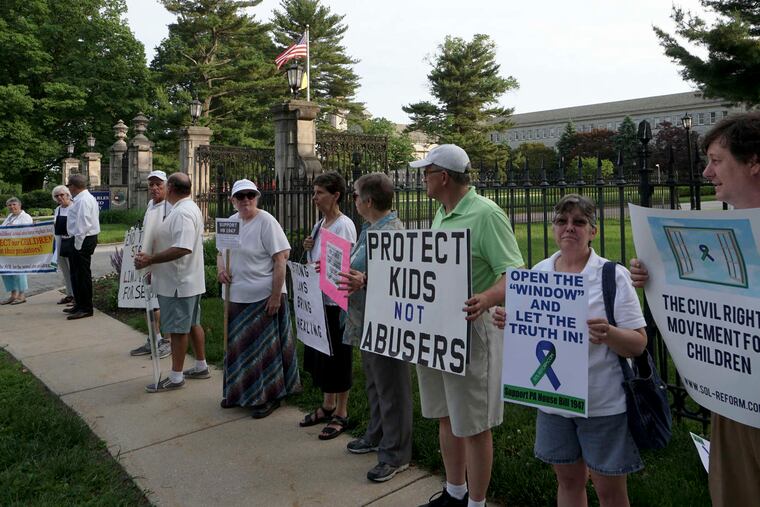A fair and open trial gives justice for victims of abuse — and discourages secrecy | Editorial
The opportunity to take legal action is important, because it creates a public record.

Earlier this month, parents of children in a charter school in Arizona found out that the school’s recently hired curriculum consultant had been accused of sexually abusing a minor in his former job. John F. Meyers just last year was removed from his position as rector at St. Joseph’s-in-the-Hills Retreat House in Malvern after an investigation substantiated claims of child sexual abuse. One of his early victims and a team of investigators found him through social media and informed the school.
It is unclear if the charter’s operator knew about the accusations and ignored them, or if Meyers managed to keep them a secret. One reason Meyers could have kept his secret was that he was protected by Pennsylvania’s statute of limitations.
Under current Pennsylvania law, criminal charges for child sexual abuse can only be brought before the victim is 30 and a civil lawsuit before the victim is 50. That became an issue most recently in the case of Catholic priests in Pennsylvania, more than 300 of whom were named in last summer’s grand jury report detailing decades of child sexual abuse. Charges were brought against only two of the predator priests because of the statute of limitations.
Attorney General Josh Shapiro and others have pushed to reform the law since the report came out, but Republicans in Harrisburg have consistently delayed the effort, arguing that a constitutional amendment is needed to extend the window of time to sue . A bill to eliminate the statute of limitations for future child abuse passed the House last week.
The opportunity to take legal action is important, because it creates a public record. Far too often, those accused of abuse and harassment settle their cases under conditions of secrecy. If they have behaved badly, they are not held to account.
This secrecy is becoming increasingly problematic. An Inquirer investigation last week found that Bloomsburg University President Bashar Hanna was quietly ousted from two other Pa. universities for mistreating female employees. Now he is facing similar allegations in Bloomsburg. Had either institution taken legal action, Hanna would have not been able to move on so easily. His actions would have been part of the public record.
Settlements wrapped in secrecy prevent a public record. In January, the city settled a lawsuit against Sheriff Jewel Williams for $127,500, one of two settled on his behalf. Williams claims he is innocent. The taxpayers who paid for his representation, and who are expected to vote for a sheriff in the upcoming primary, would not need to speculate had the case gone to a trial and a judge and jury would have convicted or vindicated Williams.
A fair and open trial is a way to ensure that there is a public record of misconduct — and give a chance for the accused to clear his or her name. That is one of many arguments for reforming the statute of limitations. There should also be a discussion about reporting requirements of private institutions when they fire people for abuse or harassment. It might be time to end secret settlements for elected officials — especially when we are the ones paying for them.